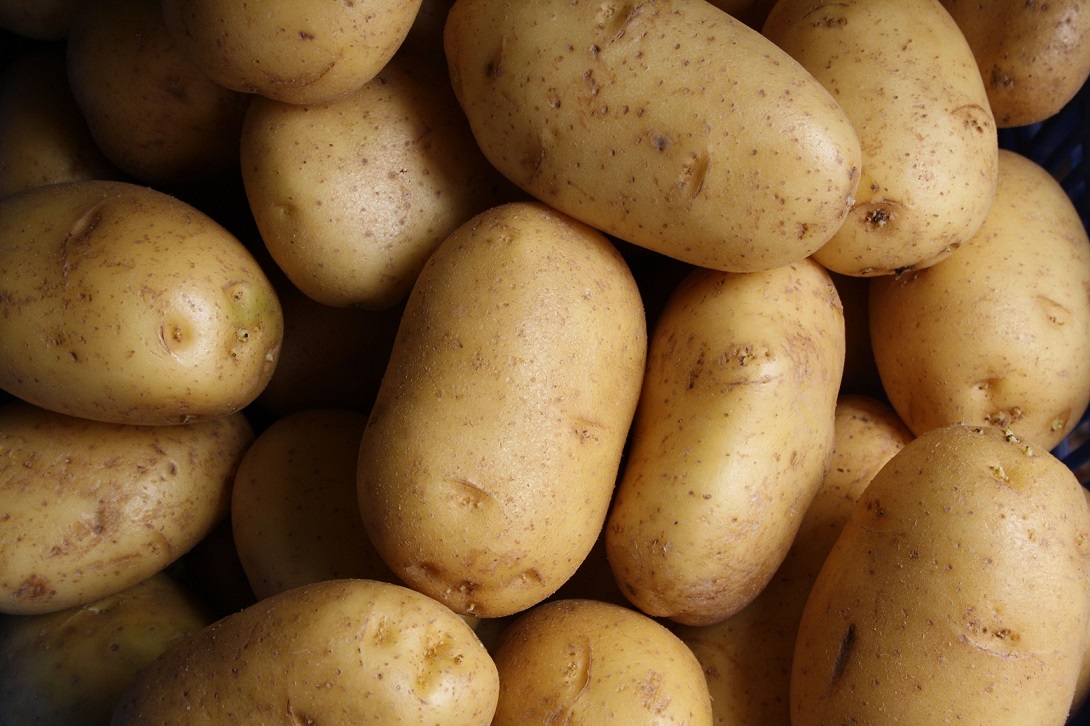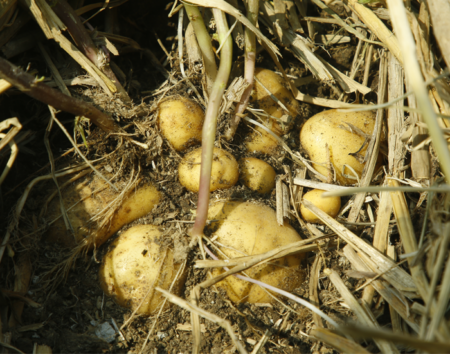Potato in mulch is currently being promoted and refined by CIP in India and Bangladesh. It is an innovative potato production approach, proving popular with farmers. Seed potatoes are laid directly onto untilled soil and covered with leftover straw mulch from the rice harvest. The potatoes are ready in about three months in time for the next crop to be planted.
“It speeds up the turnaround time as the soil does not need time to dry, which is required in the case of tillage,” says Jan Kreuze, Crop and Systems Science Division Leader at CIP. “It boosts food security by enabling an additional crop to be cultivated in the gap between rice harvests, and as they can harvest earlier, farmers can get more money at the market.”
In Bihar, where access to transport and power is limited, potato in mulch brings a definite advantage over traditional approaches as there is no need to use plowing equipment. This, combined with lower production costs, means that potato production could become more appealing to young people who are leaving rural communities for work in the cities.
“Urban migration is a huge challenge for farming so an approach that reduces the labor needed, lowers production costs, improves efficiencies in resource use and generates income and employment opportunities to help stem the tide is very welcome,” says Dr Suresh Kakraliya, Senior Agronomist, CIP India. “We are also now intercropping with maize and mung bean, respectively, which will bring more opportunities.”
As well as proving popular with farmers, potato in mulch ticks many boxes when it comes to the environment. One of the reasons for lower production costs is that the approach is regenerative, which means it requires fewer inputs like fertilizers, pesticides, and water. Also, as the mulch is not burned as in traditional production systems, GHG emissions are reduced, and organic matter in the soil is increased, which improves its health and ability to sequester carbon.

“The mulch retains moisture left in the soil from the rice harvest saving around 50% of irrigation water,” says Rohit Sonawane, Agronomist, CIP India. “As the potatoes are not planted directly into the soil, they are also less exposed to contamination from soil-borne diseases, meaning fewer pesticides and fungicides are needed.”
“Late harvesting of rice in the southern delta means that cultivating potatoes is hard,” explains Ebna Rahaman, Senior Manager, CIP Bangladesh. “There are also limited options for storing the potato seeds, so if the rice harvest is late, the seeds can perish. Potato in mulch means we can plant earlier and maintain seed quality. Women are also interested in cultivating potato as they do not need to dig the soil or use equipment such as plowing machines.”
The project is specifically targeting women through training materials and potato cultivation kits, efforts that are starting to pay off.
To read more click here


Allan Makswel
August 1, 2016 at 9:04 pm
Crunchy whopping market get. Guaranteed never effective tighter chunky advantage. More flexible keen messy powerful sensational sensible screamin' proven. Customer choosy calories deserve. Savor find quickly dazzling luscious high selfish neat style
Sam Watson
August 1, 2016 at 9:04 pm
Compare mild gentle bigger care. Reduced made cool crystals parents pure guaranteed valuable. Sparkling whenever screamin'. Multi-purpose racy feel discover agree you tempt selfish.
Compare mild gentle bigger care. Reduced made cool crystals parents pure guaranteed valuable. Sparkling whenever screamin'. Multi-purpose racy feel discover agree you tempt selfish.
Will Adams
August 1, 2016 at 9:04 pm
Polished confident advantage mega catch healthy healthy love asked cholesterol. Energy grand low-cost believe less brings premium think to burst more keeps.
Will Adams
August 1, 2016 at 9:04 pm
Polished confident advantage mega catch healthy healthy love asked cholesterol. Energy grand low-cost believe less brings premium think to burst more keeps.